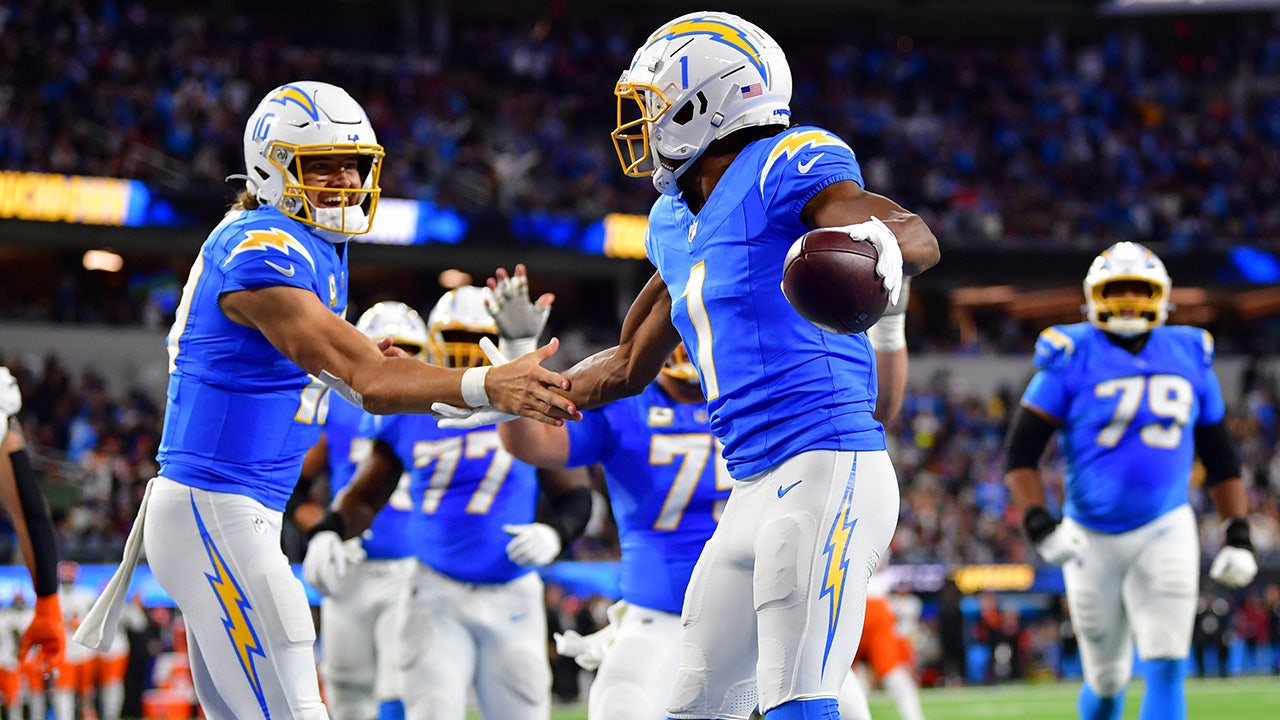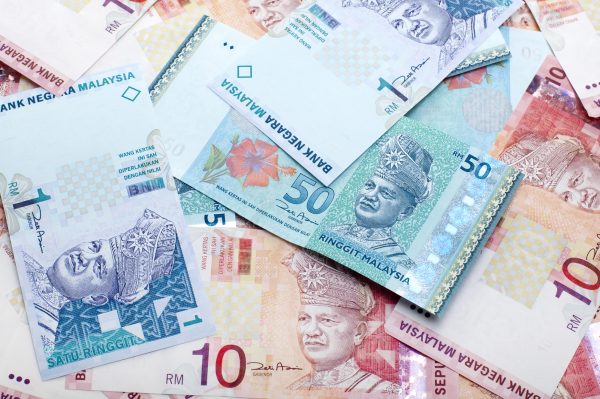Warren Buffett, the Chairman and CEO of Berkshire Hathaway Inc (BRK.A) and (BRK.B), published his annual shareholder letter for 2023 to his shareholders last month. This article provides highlights from Warren Buffett’s annual letter for 2023. The letter makes for excellent reading; many experienced investors look to his wisdom annually.
As a historical note, the first annual letter on the Berkshire Hathaway website is from 1977. People can download the letters between 1977 and 2021 from the Berkshire Hathaway website. In addition, a book was published comprising of unedited letters from 1965 to 2014, including ones not on the website.
Affiliate
Stock Rover is an award winning investment research platform.
- The site has 8,500+ stocks, 4,000 ETFs, and 40,000 mutual funds.
- Access to 650+ metrics, financial data, market news, stock and fund ratings, fair value, margin of safety, etc.
- Includes brokerage integration, portfolio tracking, rebalancing, watchlists, alerts, future income forecasts, etc.
Click here to try Stock Rover for free (14-day free trial).
Charlie Munger Eulogy
Charlie Munger died on November 28, 2023, about a month before his 100th birthday. Buffett starts the annual shareholder letter by describing how they met and how Munger influenced the evolution of Berkshire Hathaway. He calls Mr. Munger the architect who developed the vision.
Fact and Fiction
Buffett spends several pages discussing various items, such as his sister Bertie, in the introduction and follows with operating results.
He is particularly critical of the difference between net earnings and operating earnings. Net earnings include mark-to-market gains and losses; these are unrealized gains or losses. This value fluctuates daily, and in the case of Berkshire, it is as much as $5 billion. Overall, it’s a silly concept with little bearing on operating results. On the other hand, operating earnings have grown from $27.6 billion in 2021 to $37.4 billion in 2023.
Warren Buffett devotes time to discussing what Berkshire does, which is to “own either all or a portion of businesses that enjoy good economics that are fundamental and enduring.” The challenge is separating the long-term winners from the disappointments and sitting on them. However, some businesses will fail, and others will succeed; it is the nature of capitalism.
An important point is Berkshire’s financial strength, which allows it to take advantage of periodic market and economic seizures or failures. The company’s ability to deploy capital when others cannot, like in 2008 during the Great Recession, is a significant plus. Berkshire does not risk permanent capital loss and maintains a substantial percentage of holdings in cash and U.S. Treasury bills. Both are essentially low-risk, short-term investments.
The critical point is that fiscal conservatism works.
Berkshire Hathaway’s Stock Holdings
Buffett devoted a section on Berkshire’s ownership of American Express (AXP) and Coca-Cola (KO), focusing on their thought process for investing. They each comprise about 4% to 5% of the firm’s GAAP net worth.
Although the two companies are in different end markets, they have similarities. Both have long histories, with American Express starting operations in 1850 and Coca-Cola in an Atlanta drugstore in 1886. Over many years, the firms have had their ups and downs. However, they were wildly successful in their core businesses, financial trust, and non-alcoholic beverages, respectively.
After purchasing both stocks, Buffett did nothing. He did not buy or sell shares. However, over many years, the companies grew earnings and dividends. In the case of American Express, Berkshire’s share of earnings exceeded the initial cost of $1.3 billion. According to Buffett,
“The lesson from Coke and AMEX? When you find a truly wonderful business, stick with it. Patience pays, and one wonderful business can offset the many mediocre decisions that are inevitable.”
Occidental Petroleum
Buffett devotes text toward his rising stake in Occidental Petroleum (OXY). The firm struggled during the COVID-19 pandemic because of low demand and oil prices. Additionally, the firm had purchased Anadarko for $55 billion in 2019, partly financed by Berkshire. The combination resulted in OXY cutting its dividend multiple times in 2023.
However, according to Warren Buffett, the economics of shale oil production implied Occidental would be profitable when oil prices recovered. As a result, Berkshire has boosted its ownership stake to 27.8%. According to Mr. Buffett, Berkshire is not interested in managing or owning Occidental.
5 Japanese Companies
Berkshire started acquiring shares of Itochu, Marubeni, Mitsubishi, Mitsui, and Sumitomo in 2019. It owns about 9% of each now at a total cost of 1.6 trillion yen. Buffett likes these companies because they pay about one-third of retained earnings in dividends, keep management compensation low, use earnings to invest in the business, and repurchase shares.
For most American investors, buying shares in these companies is difficult. The simplest way is to own Berkshire Hathaway (BRK.A, BRK.B) or a Japanese index fund.
Controlled Businesses
Berkshire owns and controls a large and growing list of companies. The three largest are insurance and investment income, railroads, and utilities and energy.
Insurance
The insurance businesses performed well this year, setting sales, float, and underwriting profits records. After an operating loss in 2022, underwriting produced $5,428 million in earnings, while investment income was even greater at $9,567 million. Berkshire has been in business for 57 years, increasing volumes from $17 million to $83 billion. Much of that success has been due to Ajit Jain, whom Buffett praises.
Railroads
Railroads did not do as well. Berkshire owns BNSF, one of the six largest rail systems in North America. Rail moves enormous amounts of coal, chemicals, timber, cars, grain, etc., over hundreds to thousands of miles. BNSF’s revenue declined, and its operating earnings were $5,087 million less than in 2022 because of higher wages and inflation.
Utilities and Energy
Berkshire Hathaway Energy (BHE) consists of regulated utilities and gas pipelines. Like railroads, this is a capital-intensive business. Operating earnings dropped to $2,331 million because of forest fires and a challenging regulatory climate that affected profit. Overall, some states are moving away from the fixed-but-satisfactory-return approach that has worked for decades. This will probably impact future capital investment. Buffett was largely negative about BHE.
Warren Buffett Did Not Beat the S&P 500 Index
Buffett’s annual shareholder letter ended by listing yearly gains for Berkshire Hathaway compared to the S&P 500 Index since 1965. In 2023, Buffett returned 15.8%, while the S&P 500 Index returned 26.3%. After outperforming the Index for two years, Buffett trailed it because technology stocks did well.
An investment in 1965 in Berkshire Hathaway would have returned a compounded annualized gain of 19.8% and an overall increase of 4,384,748%. Over the same period, the S&P 500 Index had a compound annualized growth of 10.2% and an overall gain of 31,223%, with dividends included.
Anyone who started investing with Buffett in 1965 would be very rich by this point. For instance, the Othmers were early investors in Buffet’s partnerships and eventually owned Berkshire Hathaway (BRK.A, BRK.B) stock by 1970. They nearly became billionaires before they died in the late 90s. Even people who invested later became wealthy. For example, Stewart Horejsi became a billionaire.
Final Thoughts on Highlights from Warren Buffett’s Annual Letter for 2023
Warren Buffett’s Annual Letter always makes for good reading. He covers a wide array of items about Berkshire. He closes with a discussion about the benefits of living in Omaha.
Prior Year Highlights
Related Articles on Dividend Power
Here are my recommendations:
Affiliates
- Simply Investing Report & Analysis Platform or the Course can teach you how to invest in stocks. Try it free for 14 days.
- Sure Dividend Newsletter is an excellent resource for DIY dividend growth investors and retirees. Try it free for 7 days.
- Stock Rover is the leading investment research platform with all the fundamental metrics, screens, and analysis tools you need. Try it free for 14 days.
- Portfolio Insight is the newest and most complete portfolio management tool with built-in stock screeners. Try it free for 14 days.
Receive a free e-book, “Become a Better Investor: 5 Fundamental Metrics to Know!” Join thousands of other readers !
*This post contains affiliate links meaning that I earn a commission for any purchases that you make at the Affiliates website through these links. This will not incur additional costs for you. Please read my disclosure for more information.
Prakash Kolli is the founder of the Dividend Power site. He is a self-taught investor, analyst, and writer on dividend growth stocks and financial independence. His writings can be found on Seeking Alpha, InvestorPlace, Business Insider, Nasdaq, TalkMarkets, ValueWalk, The Money Show, Forbes, Yahoo Finance, and leading financial sites. In addition, he is part of the Portfolio Insight and Sure Dividend teams. He was recently in the top 1.0% and 100 (73 out of over 13,450) financial bloggers, as tracked by TipRanks (an independent analyst tracking site) for his articles on Seeking Alpha.





















Discussion about this post